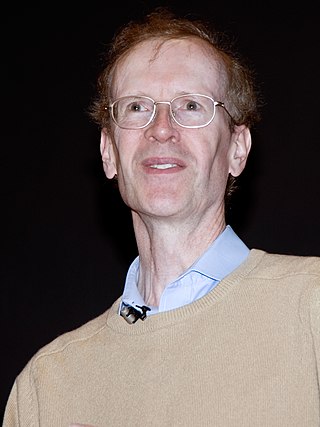
Sir Andrew John Wiles is an English mathematician and a Royal Society Research Professor at the University of Oxford, specialising in number theory. He is best known for proving Fermat's Last Theorem, for which he was awarded the 2016 Abel Prize and the 2017 Copley Medal and for which he was appointed a Knight Commander of the Order of the British Empire in 2000. In 2018, Wiles was appointed the first Regius Professor of Mathematics at Oxford. Wiles is also a 1997 MacArthur Fellow.
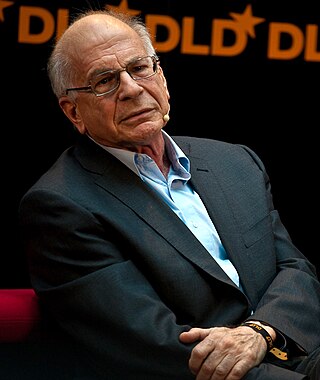
Daniel Kahneman is an Israeli-American author, psychologist and economist notable for his work on hedonic psychology, psychology of judgment and decision-making. He is also known for his work in behavioral economics, for which he was awarded the 2002 Nobel Memorial Prize in Economic Sciences. His empirical findings challenge the assumption of human rationality prevailing in modern economic theory.

James Bradley (1692–1762) was an English astronomer and priest who served as the third Astronomer Royal from 1742. He is best known for two fundamental discoveries in astronomy, the aberration of light (1725–1728), and the nutation of the Earth's axis (1728–1748).

Antony Hewish was a British radio astronomer who won the Nobel Prize for Physics in 1974 for his role in the discovery of pulsars. He was also awarded the Eddington Medal of the Royal Astronomical Society in 1969.
Sir Frederic Charles Bartlett FRS was a British psychologist and the first professor of experimental psychology at the University of Cambridge. He was one of the forerunners of cognitive psychology as well as cultural psychology. Bartlett considered most of his own work on cognitive psychology to be a study in social psychology, but he was also interested in anthropology, moral science, philosophy, and sociology. Bartlett proudly referred to himself as "a Cambridge psychologist" because while he was at the University of Cambridge, settling for one type of psychology was not an option.
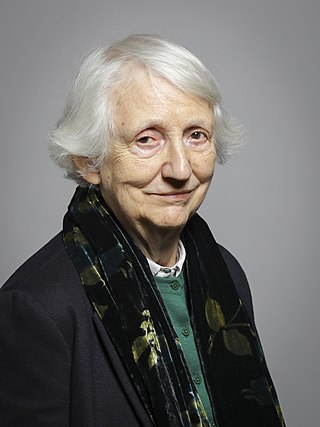
Onora Sylvia O'Neill, Baroness O'Neill of Bengarve, is a British philosopher and a crossbench member of the House of Lords.

Edgar Douglas Adrian, 1st Baron Adrian was an English electrophysiologist and recipient of the 1932 Nobel Prize for Physiology, won jointly with Sir Charles Sherrington for work on the function of neurons. He provided experimental evidence for the all-or-none law of nerves.

Maurice Stevenson Bartlett FRS was an English statistician who made particular contributions to the analysis of data with spatial and temporal patterns. He is also known for his work in the theory of statistical inference and in multivariate analysis.

Sir Harold Jeffreys, FRS was a British geophysicist who made significant contributions to mathematics and statistics. His book, Theory of Probability, which was first published in 1939, played an important role in the revival of the objective Bayesian view of probability.
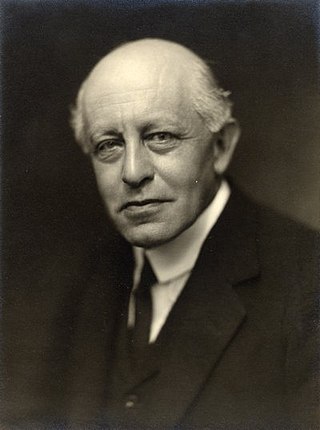
Charles Samuel Myers, CBE, FRS was an English physician who worked as a psychologist. Although he did not invent the term, his first academic paper, published by The Lancet in 1915, concerned shell shock. In 1921 he was co-founder of the National Institute of Industrial Psychology.

Alexander Philip Dawid is Emeritus Professor of Statistics of the University of Cambridge, and a Fellow of Darwin College, Cambridge. He is a leading proponent of Bayesian statistics.
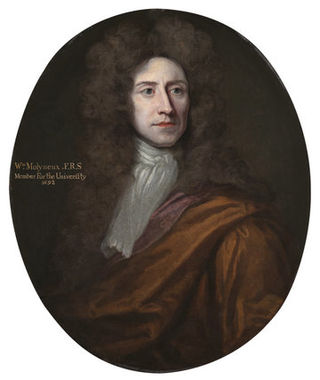
William MolyneuxFRS was an Anglo-Irish writer on science, politics and natural philosophy.
Herbert Eric Huppert is a British geophysicist. He has been Professor of Theoretical Geophysics and Foundation Director, Institute of Theoretical Geophysics, at the University of Cambridge, since 1989 and Fellow of King's College, Cambridge, since 1970.

Christopher Donald Frith FRS, FMedSci, FBA, FAAAS is a British psychologist and professor emeritus at the Wellcome Centre for Neuroimaging at University College London. He is also an affiliated research worker at the Interacting Minds Centre at Aarhus University, an honorary Research Fellow at the Institute of Philosophy and a Quondam Fellow of All Souls College, Oxford.

Sir Bernard Walter Silverman, is a British statistician and former Anglican clergyman. He was Master of St Peter's College, Oxford, from 1 October 2003 to 31 December 2009. He is a member of the Statistics Department at Oxford University, and has also been attached to the Wellcome Trust Centre for Human Genetics, the Smith School of Enterprise and the Environment, and the Oxford-Man Institute of Quantitative Finance. He has been a member of the Council of Oxford University and of the Council of the Royal Society. He was briefly president of the Royal Statistical Society in January 2010, a position from which he stood down upon announcement of his appointment as Chief Scientific Adviser to the Home Office. He was awarded a knighthood in the 2018 New Years Honours List, "For public service and services to Science".
Richard Graham Michael Morris,, is a British neuroscientist. He is known for developing the Morris water navigation task, for proposing the concept of synaptic tagging (along with Julietta U. Frey, and for his work on the function of the hippocampus.

John O'Keefe, is an American-British neuroscientist, psychologist and a professor at the Sainsbury Wellcome Centre for Neural Circuits and Behaviour and the Research Department of Cell and Developmental Biology at University College London. He discovered place cells in the hippocampus, and that they show a specific kind of temporal coding in the form of theta phase precession. He shared the Nobel Prize in Physiology or Medicine in 2014, together with May-Britt Moser and Edvard Moser; he has received several other awards. He has worked at University College London for his entire career, but also held a part-time chair at the Norwegian University of Science and Technology at the behest of his Norwegian collaborators, the Mosers.
Professor John Dixon Mollon DSc FRS. is a British scientist. He is a leading researcher in visual neuroscience. His work has been cited over 15,000 times.

William James Sutherland is the Director of Research at the University of Cambridge Department of Zoology, and was previously the Miriam Rothschild Professor of Conservation Biology. He has been the president of the British Ecological Society. He has been a Fellow of St Catharine's College, Cambridge since 2008.
John Duncan is a British neuroscientist.















